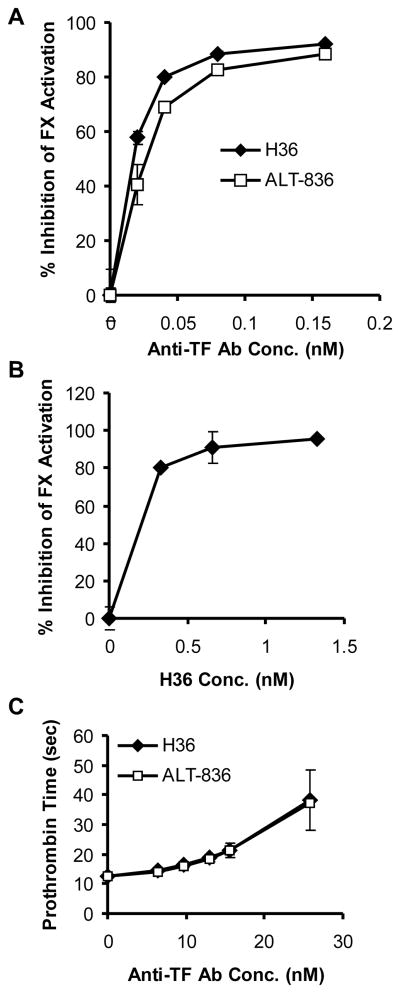Figure 2. Inhibition of coagulation by anti-TF antibodies H36 and ALT-836.
(A) Inhibition of TF-FVIIa-mediated FX activation by anti-TF monoclonal antibodies murine H36 (▲) and human-mouse chimeric H36 (ALT-836) (□). Preformed TF-FVIIa complex (containing 0.08 nM TF and 0.08 nM FVIIa) was preincubated in a microfuge tube at 37°C for 30 minutes with buffer, H36 or ALT-836 (0.02 nM, 0.04 nM, 0.08 nM, and 0.16 nM) separately. Factor X was then added to the above mixture to a final concentration of 30 nM and allowed to incubate for 10 minutes at 37°C. Factor X activation was quenched with 50 mM EDTA and the newly generated FXa concentration was determined with chromogenic substrate S-2222. (B) Human bladder carcinoma cells (J82, 2 ×105) in 1 mL were preincubated with FVII (50 ng) for 2 hours at 37 °C in the absence or presence of the indicated concentrations of H36, followed by addition of 0.3 mL of FX (50 μg/mL). Newly formed FXa levels were determined as described in Materials and Methods. (C) Effect of anti-TF monoclonal antibodies murine H36 (▲) and ALT-836 (□) on PT clotting times. PT assays were performed using Innovin and Ci-Trol Control Level I in the absence and presence of the anti-TF antibody. Data represent the means ± SD for triplicates.

